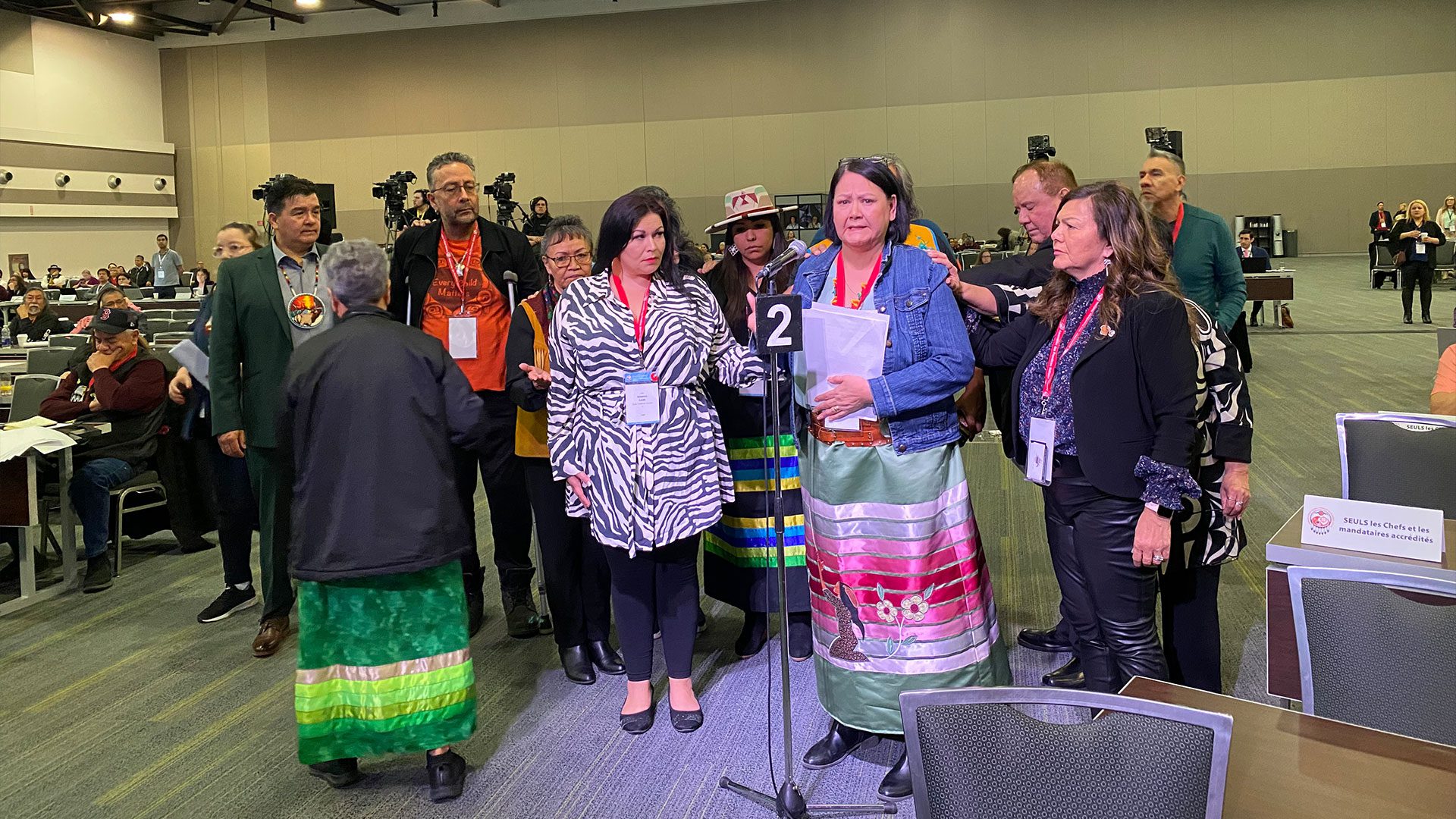Assembly of First Nations Regional Chief Cindy Woodhouse says it has taken months of work but they now believe they have a child welfare compensation agreement that works for everyone.
“I think this is the best deal we can come up with and it was united,” Woodhouse told Nation to Nation. “In December, our chiefs had come together because there were five resolutions at that point. And it’s difficult when you have five resolutions because you don’t want to hurt people and you don’t want to leave people behind.
“So, we organized together, and this is a good day because it shows what we can do when we are united.”
On Tuesday at the AFN Special Chiefs Assembly in Ottawa, delegates unanimously approved a resolution that adds a little over $3 billion to the existing $20 billion agreement.
The latest change adds another 13,000 First Nations children to the existing settlement and ensures children and families receive a minimum $40,000 payment.
Ottawa and the AFN thought they had a deal early last year but that deal was thrown into limbo in the fall after the Canadian Human Rights Tribunal said it did not meet the terms of its earlier rulings.
Read More:
AFN, Blackstock announce revised $23B child welfare compensation deal
The new settlement, which aside from the federal government and AFN has the approval of the First Nations Child and Family Caring Society, must still go before the CHRT and federal court for approval.
Woodhouse said the AFN has already started the process of planning to ensure the money that is distributed meets the needs of claimants, if and when the settlement agreement is approved.
“There’s going to be mental health supports, there’s going to be financial literacy supports, our team is going to start working and trying to bring that all together,” she said. “So, they are working to make sure all these kids, these people, that we give them the best support they need and it’s First Nations-led, First Nations driven.”
MMIWG

The head of the Assembly of Manitoba Chiefs told Nation to Nation things need to change in Winnipeg after the body of another woman was found in one of the city’s landfills this week.
“Within a short period of time, we have lost five women and four of them have been found in the landfills of Winnipeg,” Cathy Merrick said. “It’s something that is becoming to be too easy for people to do. We need to step up within the City of Winnipeg to be able to monitor, to be able to ensure that whomever goes into landfills are scrutinized in terms of what they bring in there. As a start.”
Thirty-three-year-old Linda Mary Beardy is the second Indigenous woman whose remains have been found at the Brady Road Resource Management Facility in recent months.
As a result, Merrick said the city should permanently close the landfill.
Wet’suwet’en protest

Lastly, Indigenous climate change activists were in Saskatoon this week to protest at the Royal Bank of Canada’s annual general meeting for shareholders about the bank’s funding of the oil and gas industry.
One of those activists is Wet’suwet’en Hereditary Chief Na’Moks who has fought against the expansion of the Coastal GasLink pipeline on Wet’suwet’en territory in recent years.
“We came to give our messaging of the damage their money is doing funding projects such as Coastal GasLink through our territory without our free, prior and informed consent,” he told Nation to Nation.












